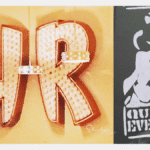(Editor’s Note: I was very intrigued by a comment left by Lance Haun – publisher of Your HR Guy – on my recent Nice and Likable post. Instead of putting my own spin on his words, I invited Lance to expand on his thoughts in a guest post. My thanks to Lance for his contribution. I hope you enjoy reading it as much as I did.)
I realize I am chiming in here late but there have been some great posts out there about whether being nice and likable is a business skill. HR Bartender had one that referenced Human Resources Pufnstuf that referenced PunkRock HR that referenced a conversation with Nancy King (You get all of that?). Great comments all around but I want to approach it a little differently. It was touched upon on here briefly in the comments section that I believe being likable and being nice are two separate states. They are viewed as the same thing by some because the terms are often used interchangeably when they shouldn’t be. Think I am being too picky? Let’s think about this more.
Likable Isn’t Always Nice
Being nice is an attitude and a way of life. You do kind things, you don’t get in arguments, and you may seen as a pushover because you avoid conflict. If you’ve chosen to be this way, that’s fine and I can’t kick anyone for being that kind of person. It would be insane. But being likable is different. It is an easy going persona, maybe a way you choose to generally interact with people but it isn’t always nice. So why do we call likable people nice?
The problem is calling someone likable sounds like a backhanded compliment. So when I met Sharlyn for the first time in person, she was down to earth and easy to talk to. So how do I describe her to people that ask? “Oh Sharlyn? She’s likable.” Aren’t you ready for me to insert in a “but” in there somewhere? If I say she is nice though, people aren’t assuming a bad intention on my part. It is just easier.
The thing is, I know Sharlyn isn’t nice all of the time. How could she be? If she was nice in contract negotiations, she’d be out of business. If she was nice in client consultations, she wouldn’t be able to tell them how they are messing up.
Here’s my hunch though: likability has helped open doors for her like it has opened them for me. And when it is “let’s get down to business time”? Being likable can help negotiate better deals, make the thought of doing business together less objectionable and can help transform your role as a pushy stranger into a friend who is just looking out for their fellow person.
Manipulation is Such a Dirty Word
The reason I included it in the post title is because that’s what it can come off as if you’re doing it wrong. Being manipulative is about intent and I am not advocating that. Manipulative behavior is easily seen through and isn’t effective. But there is a fine line between being manipulative and realizing/acting on people’s perceptions of you in a way that will be productive.
Does that mean people are going to look at me differently than before? Are they going to wonder what secret manipulation technique I am using today to make sure I get my way? Probably not. But am I aware of my personality and how it can either open or close doors for me? Do I choose to continue to act and be perceived the way I am with purpose? Of course.
That’s why being likable is a fantastic business skill to work on and develop. As I said in my comment, I wouldn’t put it above some other critical business skills but I think it would be foolish to ignore the impact it has on your business and career.
Now, would a nice guy say you’re being foolish?
Lance Haun is VP of Outreach for MeritBuilder and boldly blogs at YourHRGuy.com. While he is generally likable, the tables can quickly turn sour if the topic of conversation turns to the LA Lakers, Seattle Seahawk football (circa 1976-2000) and spaghetti as a dinner option.







Frannyo says
I find that there are two keys to being likeable. 1) Listen and engage, and 2) just flat like the person you’re talking to. People can’t help but like you if you like them first, it’s just not human nature. That doesn’t mean you’re going show them favoritism in some way, and it doesn’t mean you won’t take care of yourself and business, but dropping your reserve and just being with people is the key to sales/growing your business, and to enjoying life. So sayeth Frannyo.
HR Hooligan says
I have always been a fan of the underdog. Underdogs aren’t usually likable until people get to know them. When I was in school I had a very different opinion of teachers then my schoolmates did. If the word was out that certain teachers were mean and unkind those were usually the teachers I ended up liking the most. The reason? These teachers didn’t pull any punches. They said things as they were, without sugar coating them. These teachers also wouldn’t let a student get away with anything or try to be anyone’s friend. I admired these types of teachers because they could tell if you were working hard but still couldn’t make any head way. These teachers didn’t punish you for making mistakes if they knew you were trying…they worked with you. They had an uncanny knack of knowing who needed help and who was just an attention seeker. If you were worthy of kindness it was bestowed upon you. So, they actually were kind and likable, just not too the masses.
On the other hand, the teachers I didn’t end up liking were the ones that most other students adored. These were the teachers that tried to be everyone’s friend. Usually outspoken and boisterous they were the class clowns themselves. Their “favorites” got away with murder but didn’t learn a thing. I learned things from these experiences. People will tend to think someone is nice and likable if they have an “anything goes” attitude. I have learned that people need to earn their role as being respected and fair. It’s all about earning trust and respect.
Lance Haun says
@Frannyo – That’s great advice. Thanks!
@HR Hooligan – I don’t think you can categorically rule out that a person can’t be likable as well as being respected. As I implied in the post, there is a difference between the attitude and the action. Being a pushover and being an anything goes sort of person (action) can be different than being likable (attitude). Maybe that flies that way in education but it doesn’t necessarily fly that way everywhere else.
Not to mention that I know a bunch of hard nosed jerks who aren’t respected and aren’t fair just as much as the likable kind. There is a balance.
larryheard says
Being likable for me is getting the job done and meet the objective as long as it is feasible. Why waste time and energy in arguing or complaining. For me, if they know it can be done yet they are complaining, it is just a lazy excuse.
Dr. Manoj Paruthi says
Well said. Being nice could be the way of life but being likable is a skill that once developed can help one make his way in his professional life. On the other hand one could be taken for a ride for being nice while dealing with people who are manipulative.
Karalyn Brown says
Interesting post. I clicked on this post as the title intrigued me. I think people can see though genuine nice, nice to get ahead, and nice/needy nice so people like you. Being genuine nice can mean being genuinely honest and that’s probably not really likable sometimes.
iris says
Sure, likeable is definitely a good characteristic to have, but I think that “being likeable” is more of a personality, as in whether one is an introvert or an extrovert, or if one has the “people skills” or not. There are many sincere and wonderful individuals who may not initially be thought of as “likeable” because they do not have the smooth “people skills” or the extroverted nature that allows them to “work the room” and make everyone feel happy. Of course, there are the “manipulative” ones who seem to scheme things more than being sincere, but as for being likeable or not, I tend to think its more of a popularity contest than an individual’s true character… which, of course, will come out after knowing that individual for a longer period.
Tiffany George says
I really enjoyed this post. I think that being likeable in a business sense is a good characteristic to have. It allows people to know that on a personal level you are nice but when it comes to business it is just that. I believe that in the workplace, many people just want to get through the day and get it over with. Unless you have a sincere passion for what you do, the hum drum of doing a service can create boredom, which may be expressed with a poor attitude, or even an “unlikeable” persona. Overall, I really feel as if we shouldn’t be quick to judge people as their true character, like me or not, will come out eventually.
Ran says
I believe in the military policy “Obey first before you complain!”. It’s the same thing when in the work place, manifestation of obedience must be observed all the times. Complaints without any work is really a waste of time and energy. It’s an indication of laziness!